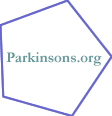
|
|
Parkinson's Disease Information | ||
|
Parkinson's Disease Alternative MedicineHope is a powerful thing. Without hope for a better future, the will to live is lost and recovery, no matter what the affliction, is impossible. Imagine then, being told by your doctor that you have a progressive and degenerative disease that robs you of the ability to control your own body. A disease for which there is no cure. This is the reality for those diagnosed with Parkinson's disease. Hope is offered in the form of medication such as Levodopa. Levodopa acts to restore levels of dopamine in the brain. The lack of dopamine is the primary reason for the symptoms associated with the condition. Since it first began being administered in the 1960's, it has lessened much of the suffering experienced by millions of people throughout the world, and is recognised as the "gold standard" in medical treatment of the disease. However, it can not completely reverse the symptoms, and like all drugs, is more effective in some than others. Consequently many have sought hope in alternative treatments. Parkinson's disease has been a recognised ailment in virtually all cultures since ancient times. Many of these ancient treatments are becoming popular in the west and are increasingly validated by western medicine. Ayurvedic medicine - This has been practiced in India for 5000 years. Parkinson's symptoms are mentioned in ancient text under the name Kampavata. Ayurvedic medicine is a comprehensive system placing equal emphasis on diet, exercise, meditation, massage and herbs. One such herb, Mucuna Puriens, is gaining attention in conventional circles as its effects mimic synthetic Levodopa, with fewer side effects. Broad beans- Australian researchers discovered that broad beans are also an extremely effective natural source of L-dopa. The highest concentration of L-dopa is found in the pod so they are most effective when consumed whole. St John's Wort- Dopamine influences positive feelings in the brain, and since dopamine levels are low in Parkinson's patients, depression is often a symptom. St John's Wort is a herb that has been used in Europe for many years. It has been proven to be effective in alleviating depression and insomnia. Botulinum toxin A- This is a bacterium that causes food poisoning (botulism) but has proven to be effective in reducing hand, head and voice tremors when in a weak solution. Coenzyme Q10 (CoQ10) - This has been shown to have an effect on the symptoms of Parkinson's Disease, however it is unclear whether it actually slows the disease or simply temporarily alleviates symptoms. The drawback is the massive dose required. The effective dose is approximately 1,200 milligrams a day, well above the 60 to 90 milligrams recommended by many alternative therapy advocates. Accupuncture- Used for centuries in China to correct energy disturbances in the body. It has become a popular method of treatment for Parkinson's sufferers the world over. So far there are no placebo controlled studies that show acupuncture can treat the motor control symptoms of the disease, but there is some evidence that it can assist with sleep disturbances. There is much anecdotal evidence to suggest that it may be effective in increasing feelings of well being and relaxation. Massage- While not treating the symptoms directly, it can help reduce some of the discomfort associated with muscle stiffness that is commonly experienced by patients. Alternative treatments for many diseases come and go. Some become fashionable for a short while only to be discredited and discarded. Others accumulate a growing body of scientific and popular support. It is to a large extent simply a matter of trial and error. Most alternative treatments are harmless, but some herbal remedies may interfere with medication, so be sure to consult your health practitioner for advice. |
||||||||||||||||||||||||||||||||||||||||
|
|
|||||||||||||||||||||||||||||||||||||||||
|
The content of this web site is intended to convey general educational information and should not be relied upon as a substitute for professional healthcare advice. More information. 2002-2012©Parkinson's Disease Information. |
|||||||||||||||||||||||||||||||||||||||||